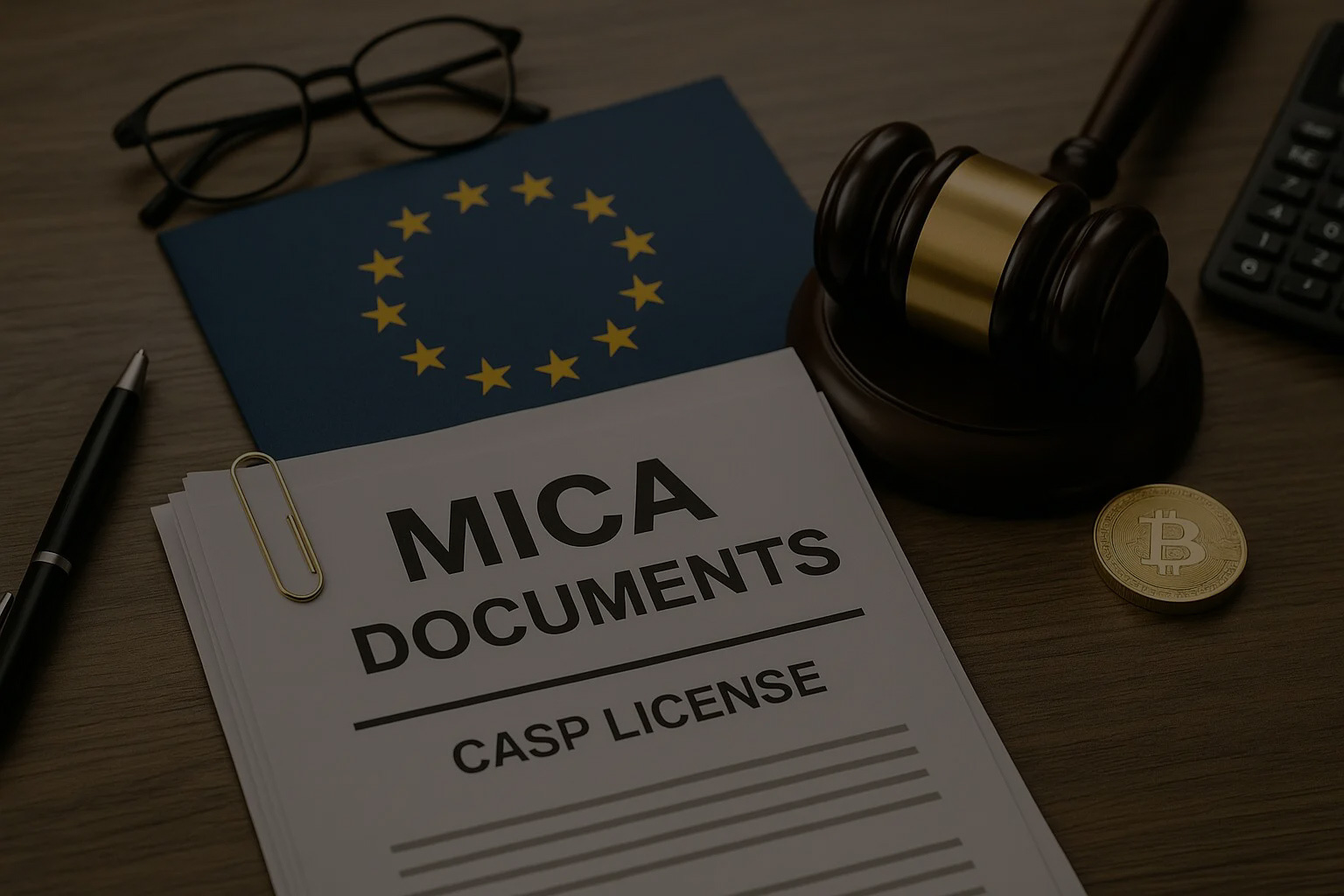Since 2021, a new trade branch has been added to the Free Trade Act-branch number 81: providing services related to virtual assets. This change is part of the Anti-Money Laundering (AML) Amendment Act. According to this law, a virtual asset is an electronic storage unit capable of performing at least one function, including payment, exchange or investment. Therefore, if you buy, sell, store, manage, transfer or broker the buying and selling of cryptocurrencies for profit in the course of your business, you must register your trade number 81 with the Trade Licensing Office after the company is registered. Another specific activity is the so-called cryptocurrency mining, where you use special hardware to conduct transactions of other cryptocurrency holders and receive rewards for ongoing activities. The scope of the free trade number 81 is not sufficient to cover this activity, so the trade office is required to register the free trade number 56: providing consulting, data processing, hosting and related activities and web portal services in the field of software, information technology.
AML rules
Rules against money laundering and combating terrorist funds have existed in the Czech legal system for some time and are gradually being strengthened and clarified, supported by the EU Anti-Money Laundering Directive. These rules also apply to the cryptocurrency space. Specifically, these rules apply to those who provide services related to virtual assets. You will be obliged to identify the customer to which you provide services and to retain that identifying information for a period of time, among other obligations. You will be supervised by the Financial Analysis Unit (FAU). It is strongly recommended that you keep the relevant documents honestly to ensure that there will be no problems with the authorities afterwards. It is recommended that you develop a KYC (Know Your Customer) methodology, internal guidelines, and questionnaires for customer identification and/or control.
Legal Development
It is important to note that the regulatory landscape of cryptocurrencies is dynamic and evolving, especially in the current period. The Czech Republic, like other EU member states, is implementing Europe's MiCA directive, which will bring further major changes to the regulation of cryptocurrencies. Many laws have not yet been passed, making it difficult to predict what further obligations might be imposed in the future (see below).
From a legal point of view, the adoption of cryptocurrencies in the Czech Republic may lead to changes in the way contracts are concluded and executed. Cryptocurrencies are considered a form of property in the country, and their use in transactions can affect the enforceability of contracts. This is because the legal system of the Czech Republic is based on the civil law tradition, which requires a clear and unambiguous agreement between the parties.
Another legal consequence of the widespread adoption of cryptocurrencies in the Czech Republic is the impact it could have on the banking ecosystem. As more people choose to store their wealth in digital assets rather than traditional bank accounts, the use of cryptocurrencies could disrupt the traditional banking model. This could lead to changes in the way banks operate, and some banks may offer cryptocurrency services to remain competitive. It could also lead to new forms of financial services and products, such as a decentralized financial platform (DeFi) that operates on blockchain technology.
From a tax perspective, the adoption of cryptocurrencies in the Czech Republic could also have an impact. Cryptocurrency transactions are subject to capital gains tax, while the Czech Republic has a progressive income tax system. As a result, individuals who receive income from cryptocurrency trading will be subject to tax, and the government will need to develop a regulatory framework.
In terms of regulation, the Czech Republic has a relatively open attitude towards cryptocurrencies, which are seen as a legitimate means of payment and the Czech National Bank does not restrict their use in any way.
Changes in Czech law
MiCA 和 DORA
The Czech Republic is aligning its cryptocurrency regulation with the EU's Crypto Asset Market Regulation (MiCA) and Digital Operational Resilience Act (DORA). These regulations introduce a new cryptocurrency framework that aims to create a safer and more transparent environment for investors and businesses.
Although MiCA and DORA are automatically implemented in the Czech legal system, please note that with the existence of MiCA and DORA, there will be many further laws that need to be adopted. Please note that the specifics of the new regulations may change as the implementation process progresses.
Major new law draft
currently, several major draft regulations under consideration by the czech parliament
The Digitization of Financial Markets;This is the main regulatory law that enables the transmission and implementation of MiCA and DORA.
Amendment Act;The main focus is to transpose the European Parliament Directive (EU)2022/2556 into domestic law and to make the necessary technical amendments in accordance with the draft on digital financial markets.
Decree of the Czech National Bank;Information obligations regarding persons subject to directly applicable crypto-asset market legislation in the EU.
The Czech Republic offers cryptocurrency licenses to meet various cryptocurrency-related service needs, such:
Cryptocurrency exchanges for trading crypto assets with fiat currencies or other cryptocurrencies.
A wallet service for the secure management and storage of cryptocurrencies.
Managed crypto storage for securing customers' digital assets.
Cryptocurrency transfer service for facilitating the transfer of cryptocurrencies.
A full-featured cryptocurrency exchange that provides a comprehensive crypto trading platform.
Key changes and requirements
Crypto Asset Issuer:
Crypto-asset issuers will need to register with the Czech National Bank (CNB) and comply with specific transparency and disclosure requirements.
-They will be subject to market abuse rules, consumer protection measures and anti-money laundering regulations.
Crypto Asset Service Provider (CASP/VASP):
-CASPs such as exchanges and wallets will need to be licensed from CNB and adhere to strict regulatory standards.
-They will need to comply with capital adequacy requirements, risk management measures and consumer protection rules.
Market Completeness:
The CNB will have regulatory powers over the crypto-asset market to ensure fair and orderly trading.
-Market manipulation and insider trading will be prohibited.
Consumer Protection:
-Investors will be protected through measures such as information disclosure, investor education and dispute resolution mechanisms.
Digital operational resilience:
-CASP will need to implement measures to ensure the resilience of its IT systems and operational processes.
-This includes incident management, business continuity planning and network security.
Timeline and implementation
MiCA:CNB has adopted a draft law on digital finance, which is in line with MiCA. The bill is expected to come into force in stages, with some provisions coming into force in 2024 and others in 2025 (please note that the assumed deadline may be delayed).
DORA:The Czech Republic is also implementing DORA, which is expected to have a significant impact on the operational resilience of financial institutions, including those involved in cryptocurrencies.
Confenced tube mechanism
Czech National Bank (CNB):CNB will become the main regulator of crypto assets in the Czech Republic.
Czech Financial Authority (CFA):The CFA may also play a regulatory role in some aspects of crypto-asset activity.
The Financial Analysis Authority (FAU):Monitoring anti-money laundering requirements.
Registration Conditions
Crypto Asset Issuer:Issuers will need to meet specific financial and operational requirements, demonstrate their ability to comply with regulatory standards, and provide information on their business model and crypto asset projects.
CASP:CASP/VASP will need to meet similar requirements, including capital adequacy, risk management measures, and compliance with anti-money laundering regulations.
Other Considerations
Taxes:The Czech government is also considering changes to the tax treatment of cryptocurrencies.
Consumer Protection:The CNB will be responsible for ensuring that investors are fully aware of the risks associated with crypto-assets and provide adequate information on their services.
Requirements for Cryptocurrency License in the Czech Republic
To obtain a cryptocurrency license in the Czech Republic, you must meet several specific and detailed requirements, and the process consists of several key stages:
Common Requirements
Registration of legal entities:Registering a company in the Czech Republic includes choosing a unique company name, obtaining a legal address, preparing founding documents, opening a company bank account and depositing share capital.
Registered capital:CASP must have sufficient equity to cover potential losses. prudential safeguards in accordance with the minimum capital requirements set out in MiCA (Article 67) and MiCA Annex IV.
Crime-free:Obtain a criminal record certificate for directors and shareholders for a period not exceeding 3 months.
AML/CFT rule:Internal documents must comply with strict anti-money laundering and countering the financing of terrorism laws, including customer identification, transaction monitoring and staff training. Develop AML/KYC policies, control and risk monitoring rules, and maintain records of financial operations.
The amount of the share capital will be entered in the Commercial Register and includes the contributions of all shareholders, which are divided:
Cash (cash on hand and cash in bank accounts),
Non-monetary (the value of movable and immovable property is assessed by experts, such as cars, technical know-how, buildings or production equipment, etc.).
Specific requirements
Appointment of Anti-Money Laundering Reporting Officer (MLRO):Appoint AML Reporting Officer in the Czech Republic to be responsible for AML/CFT compliance within the company, this role includes overseeing the implementation of the company's AML policies, procedures and controls and reporting any suspicious activity to the relevant authorities.
Government Mechanism Notice:Mandatory reporting of the launch of crypto-currency-related activities to financial regulators. Notify FAU regulators: Appoint MLROs to submit notifications of suspicious and non-standard transactions to regulators.
cryptocurrency license registration:The CASP must be registered with the Czech National Bank (CNB) and meet strict registration criteria. After the company is registered, the application is submitted to the Czech Trade Licensing Registry and subsequently to the Czech National Bank. CASP/VASP must prepare a comprehensive application that includes a detailed business plan, financial statements, management team, risk management procedures and IT solutions.
Preliminary Assessment:CNB will conduct a preliminary assessment of the application to determine whether it meets the basic requirements of the CASP licence. On-site inspections: CNB may conduct on-site inspections of CASP's premises to verify the information provided in the application and to assess CASP compliance. Due Diligence: CNB may also conduct due diligence on CASP's management team and other key personnel. Decision-making: CNB will decide whether to grant or deny the license based on the information provided in the application and the results of the evaluation and due diligence. The entire process may take several months and there may be opportunities to communicate back and forth with CNB during the review process. It is worth noting that the schedule may vary depending on the specific application situation and the workload of the CNB.
It's different.
Obligations after the CASP registration license:
Establishment of operational architecture:Establish the necessary operational framework, including opening bank accounts or integrating payment systems, registering for value added tax (VAT), and setting up accounting systems to ensure accurate financial tracking and compliance. This step is essential for managing cryptocurrency transactions, promoting clear financial reporting and complying with tax obligations.
Anti-Money Laundering and Combating the Financing of Terrorism (AML/CFT):CASP must establish effective systems to prevent and detect these crimes. Crypto companies in the Czech Republic must comply with AML laws, including reporting suspicious activity to the Financial Analysis Office (FAU). Crypto businesses must adhere to strict KYC (know your customer) requirements.
Record keeping:CASP must maintain detailed records of all transactions and customer identification for a specified period.
Data and customer protection:If a company processes the personal data of EU residents, it must comply with the General Data Protection Regulation (GDPR). CASP must inform clients about the risks of investing in cryptocurrencies and provide them with adequate information about the services provided.
Risk Management and Cybersecurity:CASP/VASP must establish effective systems to manage operational and reputational risks and protect their information systems from cyber attacks.
Cryptocurrency Exchange and Custody:CASP must ensure the proper functioning of the trading system, protect client funds and prevent market manipulation, while ensuring that clients' cryptocurrencies are properly managed and allowed easy access.
Cryptocurrency Issuance:Cryptocurrency issuers must provide investors with detailed project documents and information.
Tax Obligations:The company must be registered with the Czech tax authorities and comply with its tax obligations, including income tax, VAT and other related taxes.
Special Precautions
Specific CASP ResponsibilityMay vary depending on the type of service provided. These requirements may change over time and are updated, so companies operating in the crypto space should pay close attention to and follow the regulatory guidelines of the Czech National Bank (CNB). If you provide or plan to provide cryptocurrency-related services, you must actively cooperate with CNB to meet your regulatory obligations.
Transitional provisions in Czech legislation:It is assumed that anyone who has obtained a trade-based license to provide cryptocurrency-related services before December 30, 2024, and applies for a cryptocurrency-related service provider license under section 63 of the MiCA before December 31, 2024, can continue to provide cryptocurrency-related services under that license. Until July 2025, he/she can continue to carry out the activity based on the license until the ruling on the application for the license of the crypto service provider under Article 63 of the MiCA takes effect, but no later than July 1, 2026.
-

The Slovak Republic is an emerging developing jurisdiction due to its simple regulation and clear process for obtaining a cryptocurrency license. We will guide you through the necessary steps and provide you with a successful outcome.
-

Located in southern Europe, Bosnia and Herzegovina (B & H) is a country with a developed economy, promising prospects and excellent business conditions. The country is open to international economic cooperation, trade and foreign investment, as evidenced by successful projects in various sectors. Of particular interest are the information technology and crypto industries, which have numerous advantages due to the favorable investment climate.
-

Today, Poland is a modern European economic powerhouse, eager to develop in all areas of life, including the opportunity to implement cryptocurrency projects for individuals and legal entities around the world.
With our assistance, you can easily conduct cryptocurrency activities within the EU under stable Polish law.
-

Estonia was one of the first jurisdictions in the EU to popularize cryptocurrency licenses.
One of our offices is located in the city of Tallinn, and we actively help clients to obtain and adjust cryptocurrency licenses issued by Estonian regulators, including ensuring full compliance with MiCA regulations.
We stand ready to provide comprehensive consultation and prepare all necessary documents to ensure that your company meets the requirements of MiCA when registering and operating CASP (Crypto Asset Service Provider) in Estonia.
-

We offer a unique and highly advantageous opportunity in the market, which includes the registration of a new VASP licensed crypto company and a CASP licensed company in the Czech Republic. Upon completion of the program, both registered VASP/CASP companies can begin operations immediately. It is also possible to acquire existing companies and obtain the necessary operating licenses.
The Czech Republic's cryptocurrency license is an effective tool for both newly established cryptocurrency companies and existing projects. We provide a guarantee and indicate in the contract!
-

Under the updated regulatory framework from 29 April 2025, existing VASP licensees are allowed to continue operating until 1 January 2026. We strongly recommend starting the CASP registration application process as soon as possible.
After registering a company in Lithuania and obtaining a cryptocurrency license, you can legally provide cryptocurrency exchanges and asset custody services in the EU and globally, ensuring full compliance with European regulations.
With our assistance, more than 500 clients have obtained licenses, many of whom are successfully expanding their cryptocurrency business in the EU and international markets.
Lithuanian cryptocurrency licenses are an important asset for any company in the digital asset space, providing credibility, regulatory clarity, and access to European and global markets.
-

Get a MiCA encryption license to ensure your encryption business is legally compliant in Europe.
Crypto licenses under MiCA are essential for Crypto Asset Service Providers (CASP) to operate legally in the EU. It ensures full compliance with ESMA regulations, allows access to the European market and increases credibility.
We assist in obtaining MiCA licenses in various jurisdictions across Europe, providing regulatory advice, policy drafting, license application support and ongoing compliance assistance. Our expertise ensures that companies successfully pass MiCA requirements, reduce risk and simplify the EU approval process. Ensure compliance and expand your encryption business with our comprehensive CASP licensing services.
-

With a package of documents fully compliant with the Markets in Crypto-Assets Regulation (MiCA), you are guaranteed a place in the regulated crypto market in Europe. The European Union has pioneered the introduction of a unified cryptocurrency licensing framework, offering Crypto Asset Service Providers (CASP) the opportunity to operate seamlessly on a global scale. With advantages such as passport rights, legal clarity and enhanced access to institutional partners, the EU is now the leading jurisdiction for regulated digital asset businesses worldwide.
At Rengang Yongsheng, we provide end-to-end assistance to help you prepare and submit key documents to apply for a CASP license under MiCA regulations. Whether you are applying from scratch or adjusting your existing license, our experts can provide you with tailored CASP adjustment documents and strategic guidance.
-

Fall 2023 Top Cryptocurrency Jurisdictions! Enjoy our exclusive offer!
-

AdamSmith Law Firm is your professional partner in the process of obtaining a cryptocurrency license in Georgia. Georgia has an advanced regulatory environment and is an ideal place to establish a cryptocurrency business. Our experienced legal team provides end-to-end support to ensure a smooth and efficient licensing process.
-

El Salvador was the first country to recognize Bitcoin as legal tender, creating an enabling environment for cryptocurrency businesses.
Whether you are an entrepreneur looking to start a cryptocurrency business or an established company looking to expand, obtaining a cryptocurrency license in El Salvador can give you a significant advantage.
Rengang Yongsheng's experienced team will help you complete this process efficiently and confidently.
-

Costa Rica is rapidly emerging as a major destination for startup crypto companies, offering a highly flexible legal framework, attractive tax incentives, and a streamlined company formation process that ensures easy entry for entrepreneurs.
Register a crypto company in Costa Rica from 3000 euros.
Start setting up a crypto company in Costa Rica today.
-

Start your cryptocurrency business with confidence in one of the world's leading financial centers
The UK is the jurisdiction of choice for registering cryptocurrency businesses, offering fast approval timelines, a competitive tax structure and a cryptocurrency-friendly regulatory environment. Although the UK is no longer part of the EU, it still has strong international recognition and direct access to global financial markets. Its streamlined licensing process and clear compliance standards make it an attractive destination for entrepreneurs seeking legal certainty and business growth.
However, without local expertise, navigating the regulatory environment can be complicated. Rengang Yongsheng provides end-to-end assistance with the UK cryptocurrency licensing process, guiding you through legal requirements, documentation and communication with the Financial Conduct Authority (FCA). With the support of professionals, you can get a license in 2 to 8 weeks, depending on your business model and readiness.
-

In Canada, businesses that provide financial services such as currency exchange, money transfer, virtual currency transactions and similar activities must register as a Money Service Business (MSB) or a Foreign Money Service Business (FMSB) with the Financial Transactions and Reports Analysis Centre of Canada (FINTRAC) prior to commencing operations.
-

After registering a company and obtaining a cryptocurrency license in Seychelles, you can legally provide digital asset exchanges, cryptocurrency storage and other virtual asset activities in one of the most flexible and recognized offshore jurisdictions.
With our help, more than 500 customers have successfully obtained VASP licenses in other countries and are operating with confidence in the international crypto environment.
The VASP license issued by the FSA regulatory authority in Seychelles is a reliable legal tool to help you grow your business, build confidence among investors and partners, and demonstrate your compliance with AML/CFT requirements.
-

Saint Vincent and the Grenadines (SVG) is fast becoming the destination of choice for crypto entrepreneurs around the world. Saint Vincent and the Grenadines has a flexible regulatory environment, streamlined company formation processes and attractive tax incentives, providing you with an ideal platform to launch and manage your crypto business with a minimum of bureaucracy.
At Rengang Yongsheng, we are committed to simplifying this process for you. We're focused on guiding you through SVG's company formation process to ensure your crypto business is efficiently established and successful.
Start your crypto license for Saint Vincent and the Grenadines (SVG) today.
-

With its friendly regulatory framework and favorable business environment, Panama has become the preferred offshore jurisdiction to establish crypto companies.
Registering a cryptocurrency company in Panama costs only € 4,500 for a maximum of 2 weeks.
Start the process of obtaining an encryption license in Panama immediately.



 Your current location:
Your current location:















